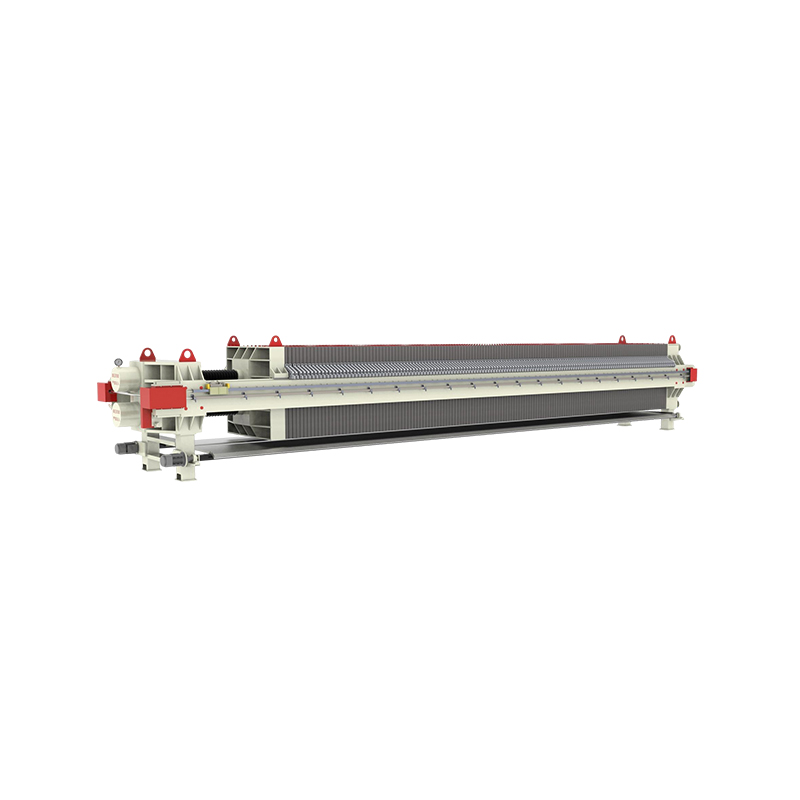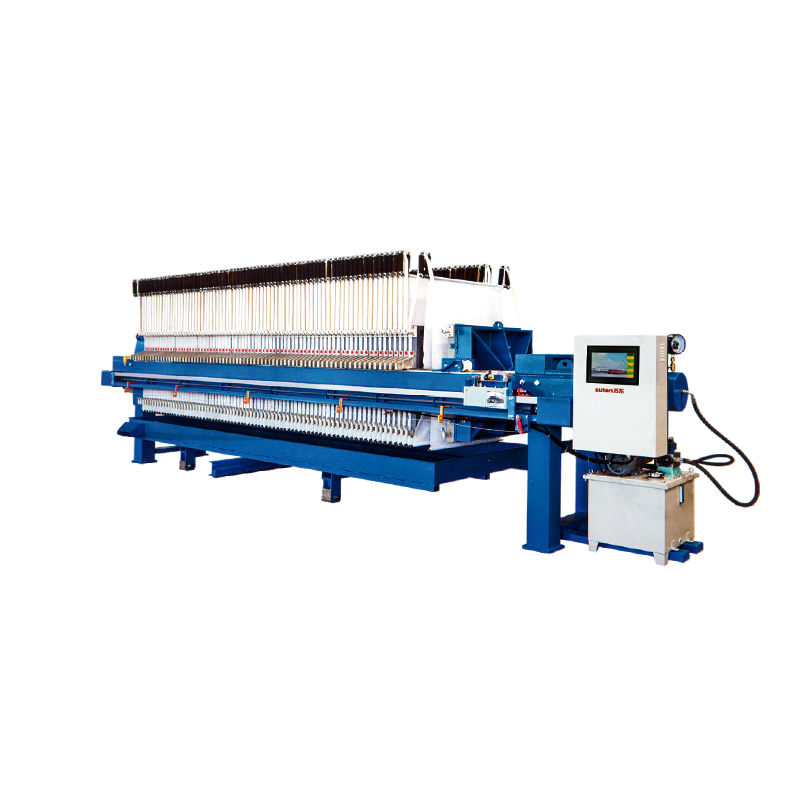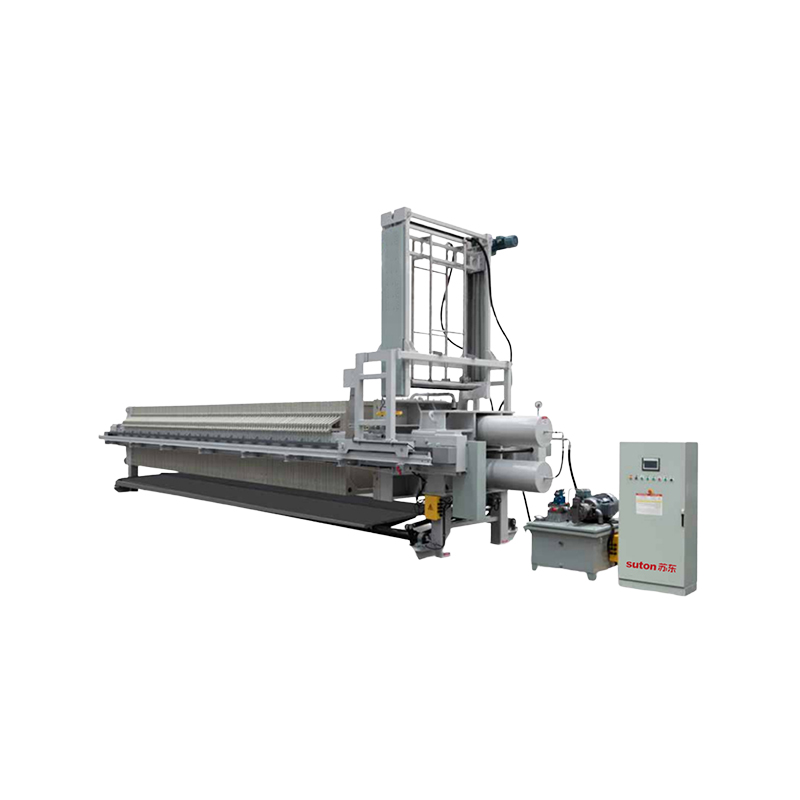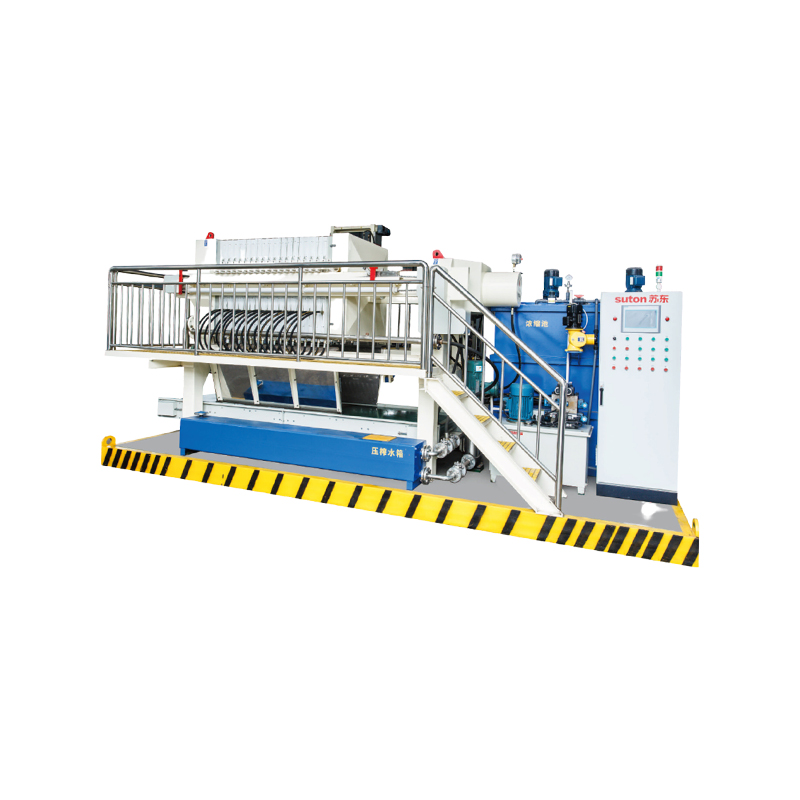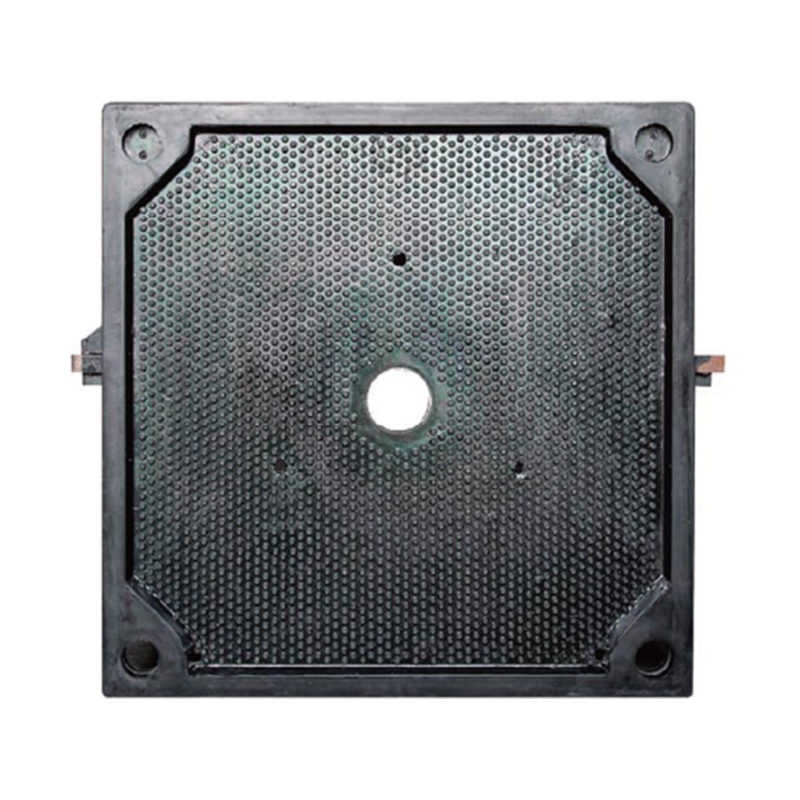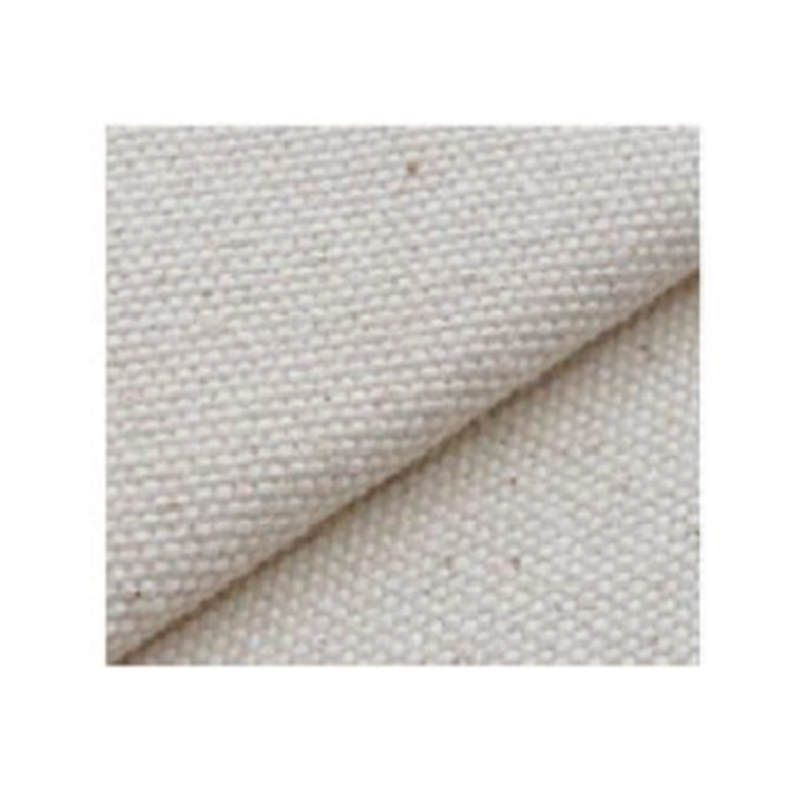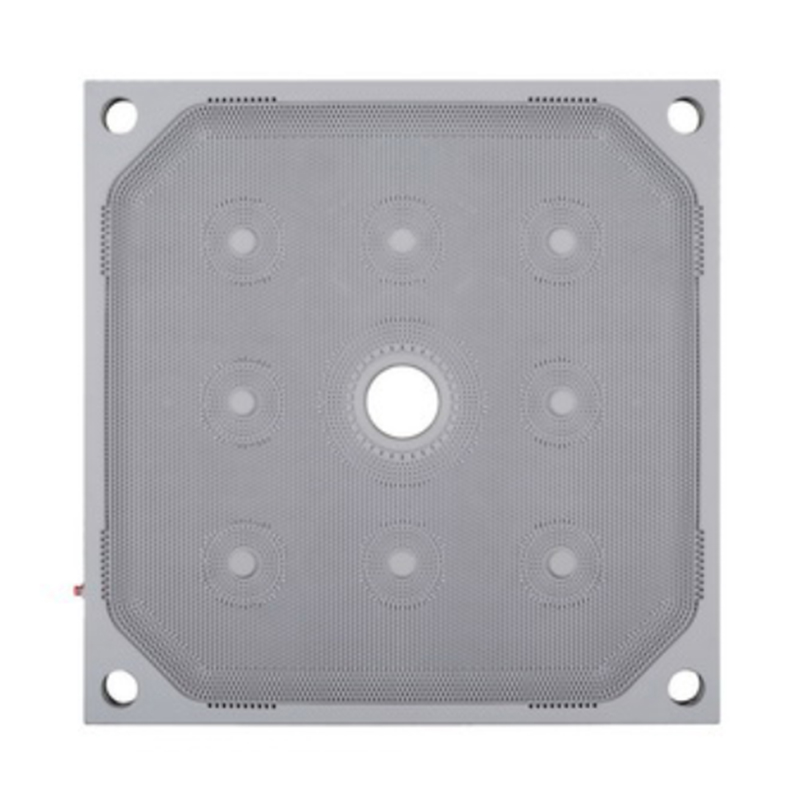Why is Filter Press Cloth indispensable in industrial dewatering?
 2025.08.25
2025.08.25
 Industry News
Industry News
1. High-Efficiency Filtration Performance: Improving Industrial Dewatering Efficiency
Filter Press Cloth is a core component in the industrial dewatering process. One of its greatest advantages is its efficient solid-liquid separation capabilities. In various industrial applications, Filter Press Cloth enables precise separation of solids and liquids through its precisely designed pore structure. Whether it's slurry dewatering in the mining industry, liquid filtration in food processing, or sludge dewatering in wastewater treatment, it significantly improves filtration efficiency. By reducing particle leakage during the filtration process, the final filtered liquid is clearer, reducing the pressure and cost of subsequent treatment.
2. Diverse Materials and Specifications: Customizable to Meet Different Needs
Filter Press Cloth is available in a variety of materials to meet the needs of different industries, including polyester (PET), polypropylene (PP), nylon (PA), and polytetrafluoroethylene (PTFE). These materials are resistant to high temperatures, strong acids, strong bases, and other corrosive media, ensuring stable operation under extreme conditions. Furthermore, the filter cloth's porosity, thickness, and weave structure (such as plain, twill, and stitched) can be customized based on the properties of the filter material to meet the needs of different industrial scenarios. For example, in the mining industry, filter cloths are required to handle large-particle slurries, while the food processing industry demands high fineness and corrosion resistance. This flexible customization makes the Filter Press Cloth a preferred solution for a wide range of industries.
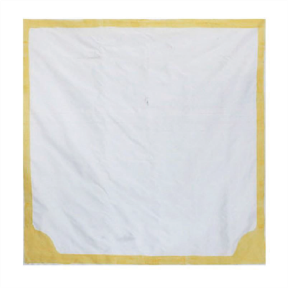
3. Improving Product Quality: Ensuring the Purity of the End Product
In many industries, filtration is not just about removing solid particles; it is also directly related to the quality of the final product. In the chemical, pharmaceutical, and food processing industries, filter cloths effectively remove impurities from liquids, ensuring the purity of the liquid or slurry. For example, in the pharmaceutical manufacturing process, even the smallest impurity can affect the quality and efficacy of the drug. Therefore, the Filter Press Cloth's role is not limited to dewatering; it also ensures that the final product meets quality standards, improving overall quality control on the production line.
In wastewater treatment, the efficient Filter Press Cloth can maximize the removal of harmful substances and suspended solids, ensuring that discharged water quality complies with environmental regulations and reducing the risk of pollution.
4. Extending Equipment Life: Reducing Repair and Replacement Costs
The high durability of the Filter Press Cloth is crucial for equipment protection. High-quality filter cloth effectively prevents excessive wear on filter presses and other related equipment. It evenly distributes pressure, reduces mechanical strain on the filter press, and thus extends the equipment's service life. Furthermore, using the right filter cloth effectively prevents solid matter from clogging the equipment, improving operational efficiency, reducing downtime, and reducing the frequency of repairs and component replacements, thereby saving significant maintenance costs.
For example, some high-end filter cloths feature self-cleaning features, which reduce clogging and improve efficiency during use, keeping the entire system in optimal working condition and minimizing production losses caused by equipment failure.
5. Strong Adaptability and Wide Application: Meeting Diverse Industrial Needs
Filter cloths meet a wide range of industrial needs. Whether it's mining, metallurgy, chemicals, papermaking, or environmental wastewater treatment, filter cloths provide an ideal solution. Different industries have varying filter cloth requirements, and with a wide selection of materials and specifications, filter cloths can meet diverse working environments. For example, in the mining industry, filter cloths must be able to handle high-concentration slurries and be resistant to abrasion. In the chemical and pharmaceutical industries, filter cloths must be corrosion-resistant and heat-resistant to ensure safety and stability during the filtration process.
Filter press cloths are particularly widely used in the wastewater treatment industry, effectively removing suspended matter and impurities from wastewater, ensuring that water quality meets discharge standards and thereby reducing the environmental impact of pollutants.
6. Energy Saving and Environmental Protection: Reducing Environmental Impact and Energy Consumption
With increasingly stringent global environmental regulations, industrial enterprises are increasingly demanding green production and energy conservation and emission reduction. High-efficiency filter press cloths not only improve filtration efficiency and reduce waste disposal costs, but also effectively lower energy consumption during the production process. By reducing the use of chemicals and energy, enterprises can achieve more environmentally friendly production processes.
Modern filter press cloths are designed with sustainability in mind, and many filter cloth materials are recyclable. This not only reduces resource waste but also aligns with global environmental trends, helping enterprises achieve green production and sustainable development.
7. Reduced Operating Costs: Improved Overall Production Efficiency
Filter press cloths can significantly reduce a company's operating costs. By selecting high-quality filter cloths, businesses can reduce replacement frequency and maintenance costs, extending the lifespan of both equipment and filter cloths. Furthermore, because filter cloths can achieve efficient filtration in a short period of time, businesses can reduce processing time and improve production efficiency. This directly reduces daily operating costs, helping businesses gain an advantage in a competitive market.
Regular cleaning and maintenance of filter press cloths can also effectively extend their service life, preventing production downtime caused by clogging or damage, further improving business profitability.
8. Improving Production Efficiency: Accelerating Production Cycles
Filter press cloths play a significant role in improving production efficiency. With increasing industrialization, many production lines require efficient and continuous operation. Filter press cloths provide stable filtration performance, enabling faster solid-liquid separation and shortening production cycle times. This not only improves overall production line efficiency but also helps businesses increase output during peak production periods to meet market demand.
By optimizing the use of filter press cloths, businesses can process more material in the same amount of time, further improving resource utilization and production capacity.

 English
English Español
Español हिंदी
हिंदी Tiếng Việt
Tiếng Việt

